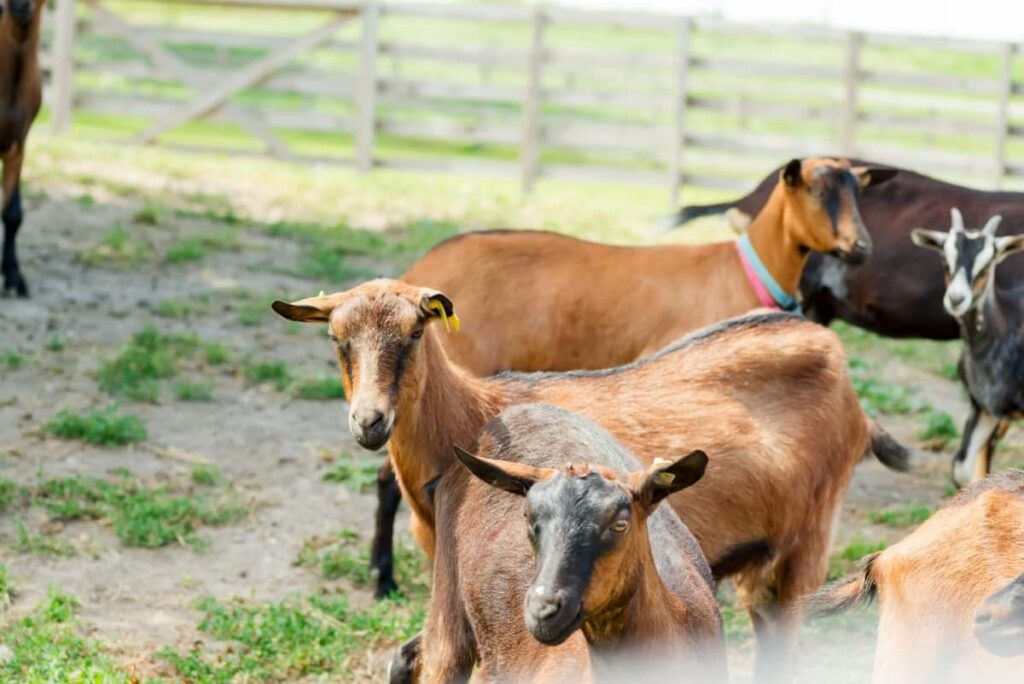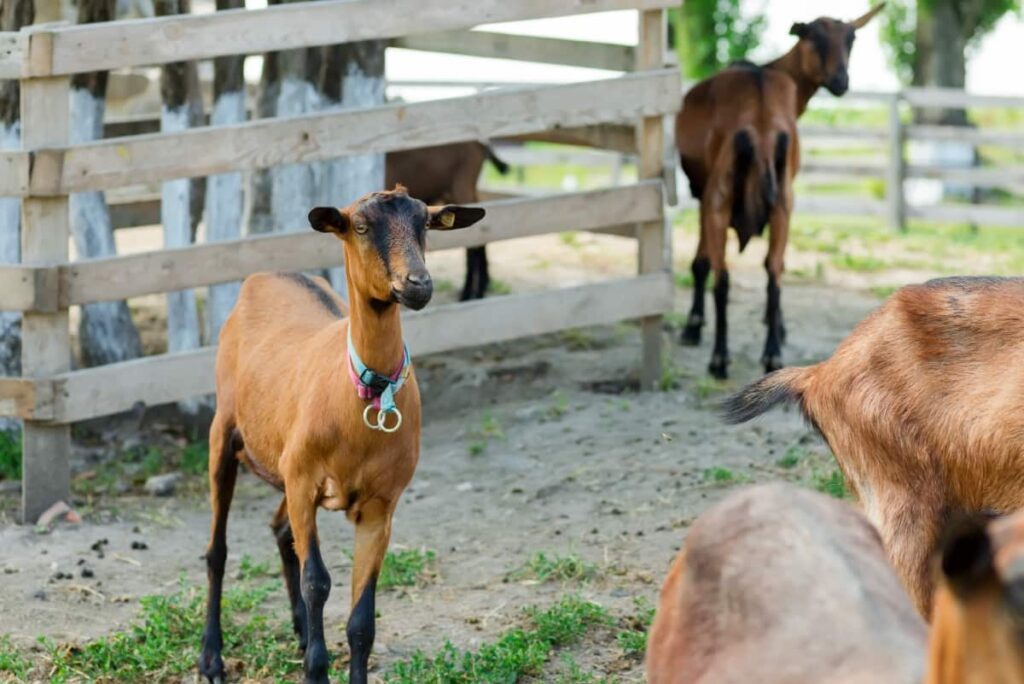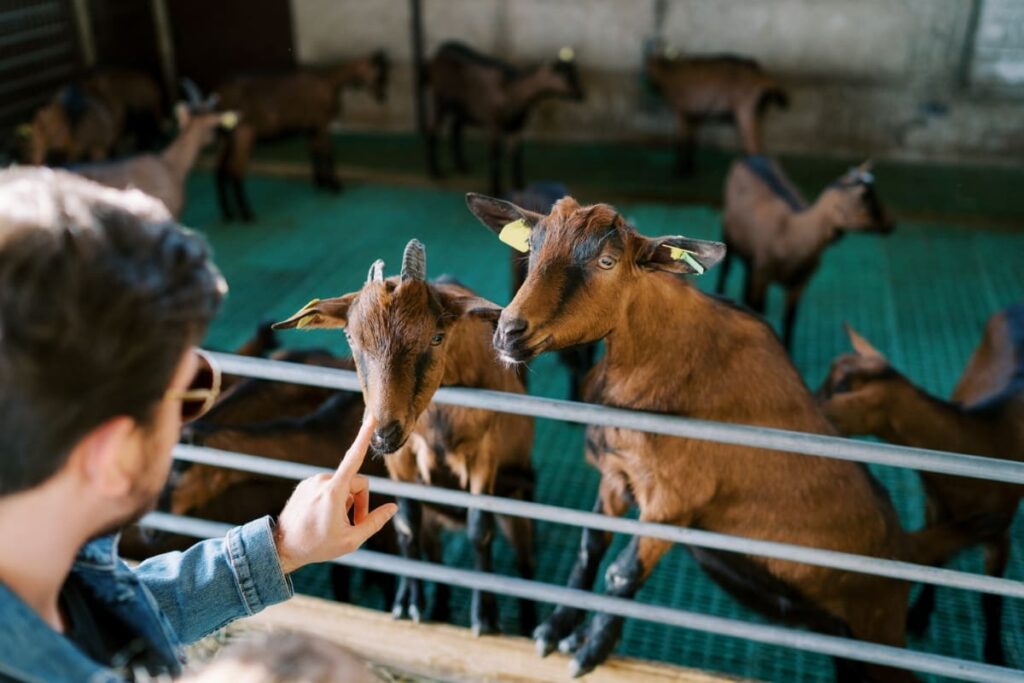Belgian Fawn Goats are known for their docile nature. They make wonderful companions and bring joy to our farm. Raising Belgian Fawn Goats contributes to sustainable agriculture practices. These captivating creatures are not only adorable but also make excellent companions and valuable additions to any farm or homestead.

Belgian Fawn Goats
A Rare and Gentle Breed of Belgian Fawn Goats: Worth Knowing About
The Belgian Fawn breed stands out for its rare beauty and gentle nature. These goats are a true gem in the world of livestock, offering both aesthetic appeal and docile personalities. Belgian Fawn goats are known for their calm demeanor and gentle disposition. They have a natural curiosity and tend to be friendly towards humans, making them excellent companions for those seeking a more peaceful animal interaction.
These goats also possess various traits that make them valuable in agriculture. Their medium-sized build allows for easy handling while still providing ample meat production potential. This versatility is highly sought after by farmers looking for adaptable livestock options.
Characteristics and Traits of Belgian Fawn Goats
Belgian Fawn goats are known for their unique and distinct characteristics, making them a fascinating breed to raise. These gentle creatures possess an elegant appearance with their horned black or brown bodies and black skin. Their average weight and height make them a suitable choice for both meat production and companionship. The main trait of Belgian Fawn goats is their calm and docile nature.
They have a friendly disposition, which makes them easy to handle and work with. This temperament also makes them ideal for interacting with children or other animals on the farm. Another characteristic of Belgian Fawn goats is their adaptability to various environments. When it comes to size, adult male Belgian Fawn goats weigh around 65 kg on average, while females weigh approximately 60 kg. With a wither height of 81 cm for males and 71 cm for females, these goats display a sturdy and compact build.
The History and Origins of Belgian Fawn Goats
The Belgian Fawn goat breed, originating from Belgium, has an interesting lineage that can be traced back to the Chamois Colored goat of Switzerland. Belgian Fawn Goats have a rich heritage that dates back many years. They were originally bred for their meat production capabilities, as well as for their ability to adapt well to various climates. These goats play an important role in sustainable agriculture practices due to their ability to thrive on diverse vegetation and limited resources.
Raising Healthy Belgian Fawn Goats
Firstly, providing adequate nutrition is crucial for the overall health of Belgian Fawn goats. They should have access to fresh water and be fed a good diet consisting of high-quality hay or pasture grass. Veterinary check-ups are another vital aspect of raising healthy Belgian Fawn goats. It’s important to have them examined by a knowledgeable veterinarian who can provide vaccinations, deworming treatments, and any necessary medical care.
Maintaining proper hygiene in their living environment is key to preventing diseases and maintaining good health. Regularly clean their shelter and remove any waste or soiled bedding to reduce the risk of illness. Exercise is also essential for the well-being of your Belgian Fawn goats. Providing goats with enough space to roam freely allows them to be involved in natural behaviors like grazing and climbing, keeping them physically fit.
How to Care Belgian Fawn Goats
First and foremost is providing them with proper shelter and fencing. These goats are known for their love of exploring, so it’s important to have strong and secure enclosures to prevent any unwanted escapes. Regular grooming is also necessary for these beautiful creatures. Furthermore, keeping up with routine veterinary care is vital in maintaining the overall goat’s health. Regular check-ups, vaccinations, deworming treatments, and hoof trimming should be part of your goat care regimen.
In case you missed it: Chyangra Goat: History, Origin, Characteristics, Size, Lifespan, Uses, Price for Himalayan Goat

The Role of Belgian Fawn Goats in Meat Production
These gentle animals are known for their excellent meat quality, making them a popular choice among farmers and breeders. The main factor in the success of Belgian Fawn goats in meat production is their impressive growth rate. These goats have a fast growth rate, allowing them to reach market weight relatively quickly.
Additionally, Belgian Fawn goats have lean and flavorful meat. Their low-fat content makes them an ideal choice for health-conscious consumers who prefer leaner cuts of meat. The rich flavor adds depth to various dishes. Furthermore, these goats have strong reproductive capabilities, which contributes to sustainable breeding practices.
Nutrition and Diet Requirements for Belgian Fawn Goats
Feed your goats a balanced diet consisting of high-quality hay or pasture grass, supplemented with minerals and grains if needed. Monitor their feed to prevent overeating or undernourishment. A balanced diet for Belgian Fawn Goats consists of high-quality forage, such as fresh grass or hay, which should make up the majority of their daily intake.
Additionally, providing them with a variety of browsing options, such as shrubs and tree leaves, can help fulfill their natural browsing instincts. Supplementing their forage with a grain mix formulated specifically for goats can provide essential nutrients like protein, vitamins, and minerals.
The Art of Breeding Belgian Fawn Goats
Breeding goats involves selecting the right pairings based on their genetic traits, health, and overall suitability for reproduction. One crucial aspect of goat breeding is ensuring proper nutrition and healthcare for both the male and female goats. Breeding Belgian Fawn Goats also requires an understanding of their reproductive cycle. Female goats typically come into heat every 18-21 days during the breeding season, which usually occurs in the fall. It’s essential to closely monitor these cycles to determine the optimal time for mating.
When it comes to mating, introducing a healthy buck into the herd can greatly improve breeding success rates. Bucks should be selected based on their physical attributes, such as size, conformation, and coat color. Once successful mating has occurred, it’s vital to provide ample space and shelter for pregnant does. They require extra care during the gestation period through proper nutrition management and veterinary care.
Belgian Fawn Goats in Sustainable Agriculture
These gentle creatures offer numerous benefits to farmers and the environment alike. With their hardy nature and ability to adapt, they thrive in various climates and terrains, making them valuable assets for sustainable farming. The key advantage of incorporating Belgian Fawn goats into agricultural practices is their natural grazing behavior. These goats are excellent grazers that can efficiently manage vegetation growth on pasturelands.
In case you missed it: Asmari Goat: Breed Characteristics, Origin, Size, Lifespan, Price, and Raising

By selectively consuming weeds and unwanted plants, they help control invasive species without relying on harmful herbicides or machinery. Belgian Fawn goats also contribute to soil health through their manure. Their droppings serve as a rich source of organic matter that enhances soil fertility over time. This reduces reliance on synthetic fertilizers and promotes long-term sustainability in agricultural systems.
Belgian Fawn Goats as Companion Animals
As companion animals, Belgian Fawn goats provide companionship and entertainment. They love being in the company of humans and enjoy interacting with them. Whether it’s grazing together in the pasture or simply lounging around, these goats will always bring a smile to your face. Unlike other livestock animals, Belgian Fawn goats can be easily trained. With consistency, you can teach them basic commands like “come” or “stay.” This makes handling them much easier, especially when it comes to routine health check-ups or grooming sessions.
Challenges and Considerations in Raising Belgian Fawn Goats
Raising Belgian Fawn Goats can be a rewarding experience, but it also comes with its fair share of challenges and considerations. One challenge is ensuring proper housing and fencing for these active animals. Another consideration is their nutritional needs. These goats require a balanced diet consisting of high-quality hay or pasture grass, along with grain supplements.
Healthcare is another aspect that requires attention when raising Belgian Fawn Goats. Regular vaccinations and deworming are necessary to keep them healthy and protect against common diseases. Also, providing adequate shelter from extreme weather conditions is crucial for their well-being.
Conclusion
Belgian Fawn Goats are known for their physical characteristics, which set them apart from other goat breeds. These gentle creatures offer numerous benefits and play a vital role in various aspects of agriculture.
Note: The images presented in this post are intended solely for representation purposes. The images are meant to serve as visual aids and should not be relied upon as accurate representations of their real-life counterparts.
- Goat Feed Options for Weight Gain
- Types of Grass Growing for Goat Farm
- How to Train Goats for Milking: A Beginners Guide
- Goat Milking Practices and Equipment: A Beginner’s Guide
- Goat Farming for Fiber: Producing Mohair and Cashmere
- Maximizing Goat Milk Production: Tips for Dairy Goat Farmers
- Goat Farming as a Family Business: Strategies for Success
- Profitable Kenya Goat Breeds for Commercial Dairy and Meat Business
- Unlock the Secrets of Oberhasli Goat: Discover Raising and Management Practices